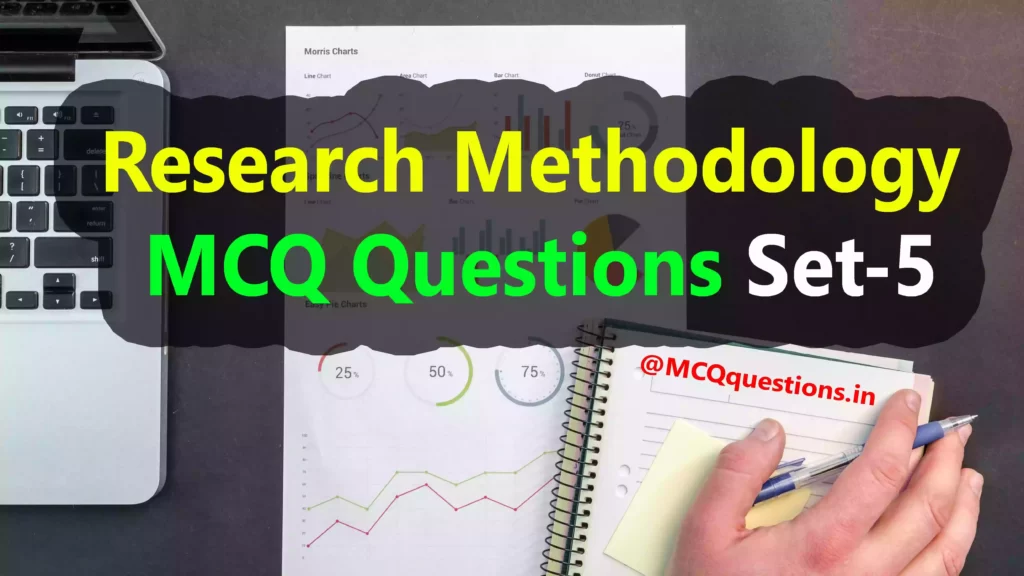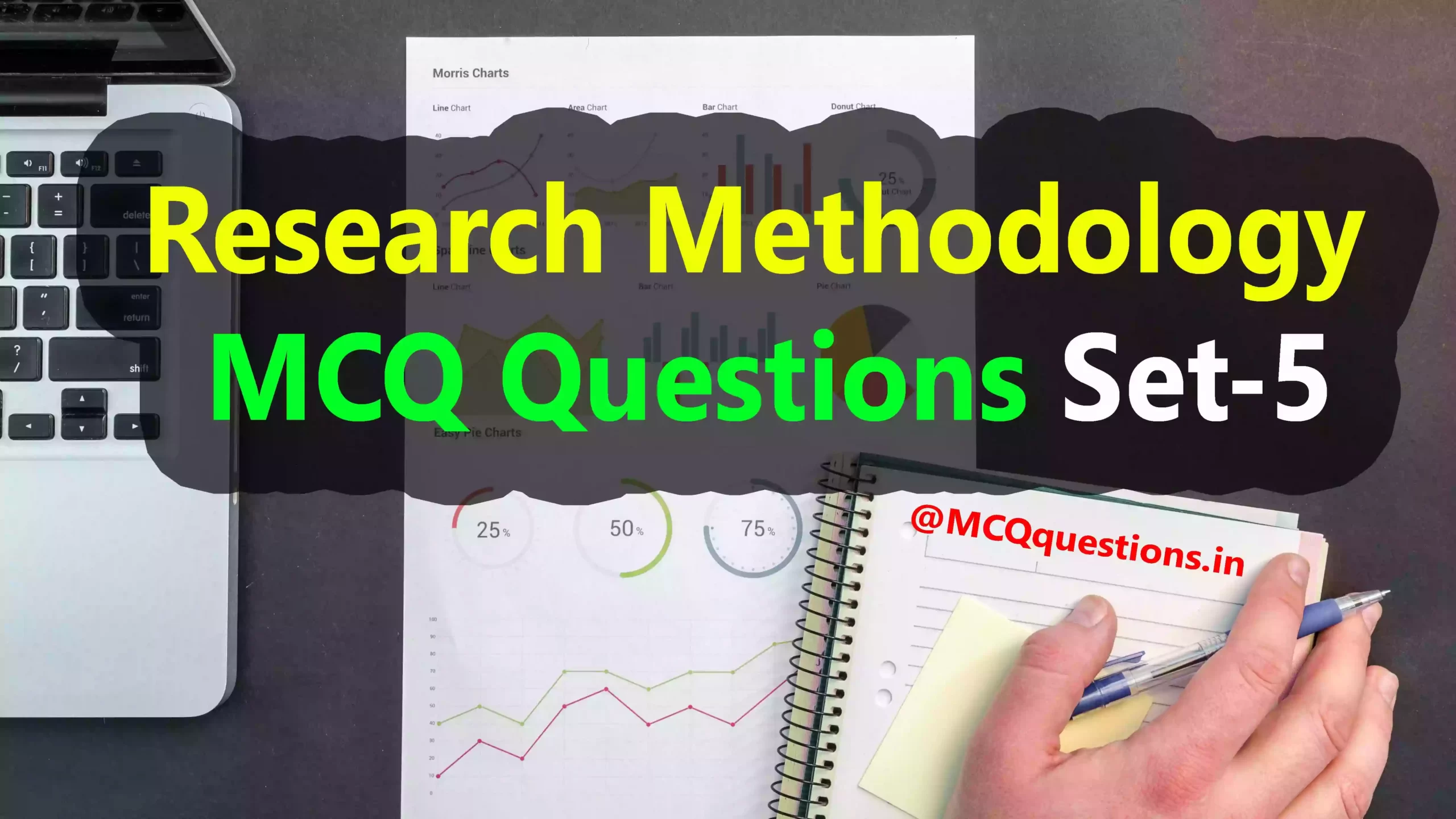Research Methodology MCQ

Research Methodology MCQ Questions
Also you can read
1. A good researcher lays his hands on
(A) A specific area and tries to understand it great details in
(B) A specific area and tries to understand it in minute details
(C) Several areas and tries to understand them at basic level
(D) Any area of his interest
Answer (B) A specific area and tries to understand it in minute details
2. The research is always
(A) Verifying the old knowledge
(B) Exploring the new knowledge
(C) Both ‘A’ and ‘B’
(D) None of the above
Answer (C) Both 'A' and 'B'
3. The research that applies the laws at the time of field study to draw more and more clear ideas about the problem is
(A) Action research
(B) Experimental research
(C) Applied research
(D) Survey research
Answer (B) Experimental research
4. Which of the following process is not needed in experimental research?
(A) Observation
(B) Reference collection
(C) Controlling
(D) Manipulation
Answer (B) Reference collection
5. A research problem is not feasible only when
(A) It consists of independent and dependent variables
(B) It is researchable
(C) It has utality and relevance
(D) It is new and adds something to knowledge
Answer (A) It consists of independent and dependent variables
6. Research methods can be put into which of the following category?
(A) Pre-empirical research
(B) Descriptive methods
(C)Experimental method
(D) All of the above
Answer (D) All of the above
7. Choosing a specific behaviour and counting its occurrences comes under
(A) Correctional research
(B) Naturalistic observation
(C) Survey research
(D) None of the above
Answer (B) Naturalistic observation
8. Determining the relationships between two or more variables comes under
(A) Naturalistic observation
(B) Correctional research
(C) Survey research
(D) Action research
Answer (B) Correctional research
9. Participant observation is the process of immersing yourself in the study of
(A) Processes
(B) Organization
(C) People
(D) Methods
Answer (C) People
10. A research method ‘ethnography’ is the process of describing a
(A) Culture
(B) way of life
(C) Both ‘A’ and ‘B’
(D) None of the above
Answer (C) Both 'A' and 'B'
11. Which of the following is an way of doing social science research?
(A) Case study
(B) Game study
(C) Plan study
(D) Process study
Answer (A) Case study
12. Dramaturgical interviewing is a technique of doing research by
(A) case study
(B) Role playing
(C) Planning
(D) Sampling
Answer (B) Role playing
13. Which of the following is the goal of evaluation research?
(A) Situation-based decision making
(B) People-based decision making
(C) Data-based decision making
(D) Trend-based decision making
Answer (C) Data-based decision making
14. Under the evaluation research which type/s of decision is/are made?
(A) Need assessment
(B) Process evaluation
(C) Context evaluation
(D) All of the above
Answer (D) All of the above
15. Usually which type of questions is asked during interviews?
(A) Close-ended
(B) Natural
(C) Open-ended
(D) Puzzling
Answer (C) Open-ended
16. Which of the following is not a component of ethical research?
(A) Competence
(B) Voluntariness
(C) Consent
(D) Suitability
Answer (D) Suitability
17. Which of the following completes the research process?
(A) Research note
(B) Report writing
(C) Summary writing
(D) Preface writing
Answer (B) Report writing
18. Which of the following is a suggested outline for report writing?
(A) Prefatory material
(B) Primary material
(C) Supplementary material
(D) Analytic material
Answer (A) Prefatory material
19. Which of the following is the most eye catching part of the research report?
(A) Summary
(B) Conclusion
(C) Preface
(D) Glossary of terms
Answer (B) Conclusion
20. A research report is the presentation of
(A) Positive evidences.
(B) Negative evidences
(C) Both ‘A’ and ‘B’
(D) None of the above
Answer (C) Both 'A' and 'B'
